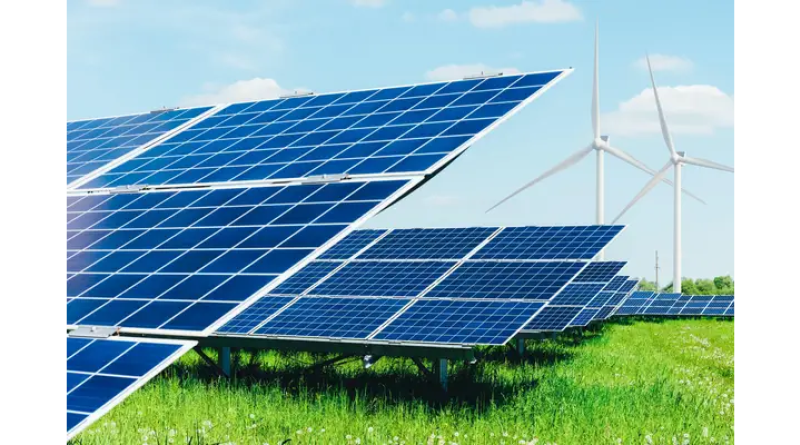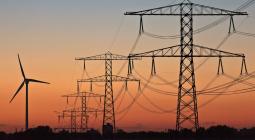Electrification: key to Europe's energy independence

The war between Russia and Ukraine has been the last straw in the energy market. Since the early days of the war, the prices of gas and other fossil fuels have soared to unprecedented levels, dragging down the price of energy. At the epicenter of this storm is natural gas, which in Europe comes mostly from Russia. Specifically, it accounts for 40% of what it consumes, which generates a high energy dependence that is also being used as a tool of pressure and political destabilization. But how to escape from it?
More renewables and faster
A few days ago, the European Commission released a document that analyzes the measures to be taken to reduce the energy dependence of the 27 and achieve a more affordable, safe and sustainable energy. The first line of action it proposes is – through the recovery funds – to further promote the development of renewable sources as substitutes for gas to accelerate the energy transition that is already underway. Moving from a polluting model to a cleaner one.
That is the real revolution that Europe has been leading for years and that seeks to transform the energy that moves the world, the differential commitment to combat climate change and reach an electric and renewable horizon. And it seems that the current situation could become a lever to accelerate that transition towards an independent and respectful energy future with nature.
Renewable energy, the wealth of Spain
At the moment, the reality is that more than 80% of the natural gas and about 95% of the oil consumed by Europeans is imported. This subjects us to enormous volatility in commodity prices and conditions our economies. However, and here is the key, most of the countries that depend on crude oil have a large capacity to generate clean energy. In fact, the World Energy Transitions, International Renewable Energy Agency, points out that "all countries have the potential to produce renewable energy and thus gain energy security and independence."
Without going any further, this is the case of Spain: a country rich in sun and wind, but not in fossil fuels, which buys from third countries. This makes it an energy-dependent nation of nations such as Algeria (where 35% of our natural gas comes from), OPEC (from which we buy crude oil) or Russia, which through geopolitical pressures destabilizes international markets, pressuring prices upwards.
The current crisis created by the aggression against Ukraine has made it clear: the percentage of gas imported from Russia to Spain is 10.7%, according to data from the Corporation of Strategic Reserves of Petroleum Products. It seems little, and yet it has meant enough to seriously alter energy market prices and create a domino effect. Through inflation, it impacts the daily life of every Spaniard and every European, who see how their savings are worth less and how a good part of the products and services they buy are more expensive. Therefore, the great strategic alternative for the future of Spain and all of Europe are renewable sources.
It should be noted that there has already been progress in this regard. Wind energy became in 2021 the main source of electricity generation in Spain, contributing 23.3% of the kilowatts produced. And the energy from the sun has also multiplied to almost 10% between photovoltaic and thermal. At the moment, half of the electricity in Spain is already produced with renewable generation sources. However, there is still a long way to go to reach the goal of decarbonizing the economy by 2050.
Electrification with renewables, cheaper
In addition to the benefits for the environment, the truth is that another advantage of electricity produced by renewable sources is that it is cheaper. In addition, the more we generate, the less we will have to import fossil fuels from other countries. Of all the increase in the price of electricity in 2021 (+230%), 85% was due to the escalation of gas prices. The rest, 15%, was caused by the rise in the costs of CO2 rights. Therefore, the sooner we reach that electricity economy, the sooner we will leave behind the fluctuations of prices.
There are handicaps that can discourage this commitment to electrification, such as the current volatility of prices or the initial investment that may entail. However, it is important to keep in mind that the economic benefits it brings will be, in the medium term, much broader than the investment. In fact, we only have to look at the data on the development of self-consumption projects in our country: in 2021, it had a growth of 85%, according to figures from the renewable employer APPA. Specifically, the residential sector accounted for 22% of the total number of installations. Why? Because one of the biggest benefits of installing solar panels is the lowering of the energy bill. And this applies to all sectors, both the small consumer and the large company or transport and mobility.
In addition, technological development has led to a huge innovation in the materials that make up the plates, which has made photovoltaics much more competitive economically; even with respect to fossil sources, according to IRENA (International Renewable Energy Agency). In fact, thanks to research, global PV capacity has increased from 40 GW in 2010 to 580 GW in 2019. The same energy organizations also argue that if the first two decades of the twenty-first century have been for renewable energies, the decade 2020-2030 will be to carry out electrification through these and achieve energy neutrality in 2050, abandoning gas and fossil fuels as quickly as possible.
We are therefore at a key moment, when we will abandon a model based on fossil fuels. A model that, although it has brought enormous prosperity and development, is also showing serious disadvantages both in the short-medium term and in the long term, generating a climate crisis that is already here, in addition to an energy dependence on which we now see its consequences: economic, social and political instability. Electrification is therefore key to energy emancipation, but also to our democratic model. Betting on electrification is betting on the future of Spain and Europe.





